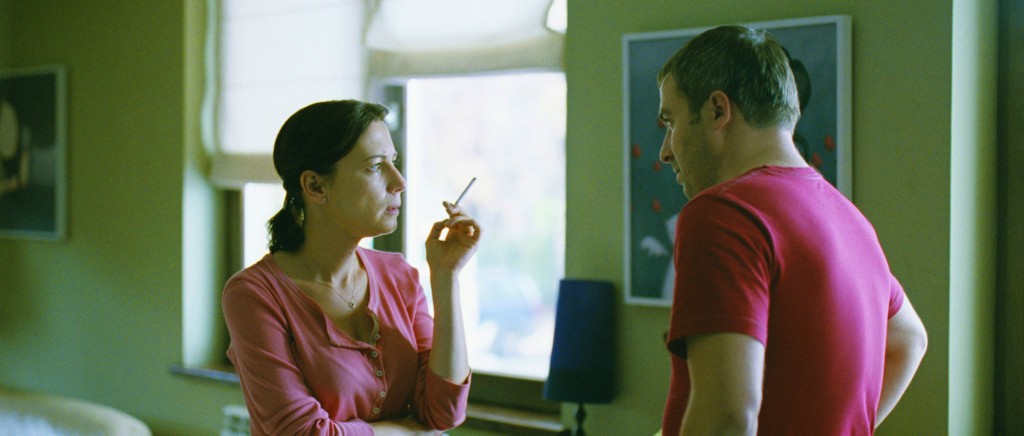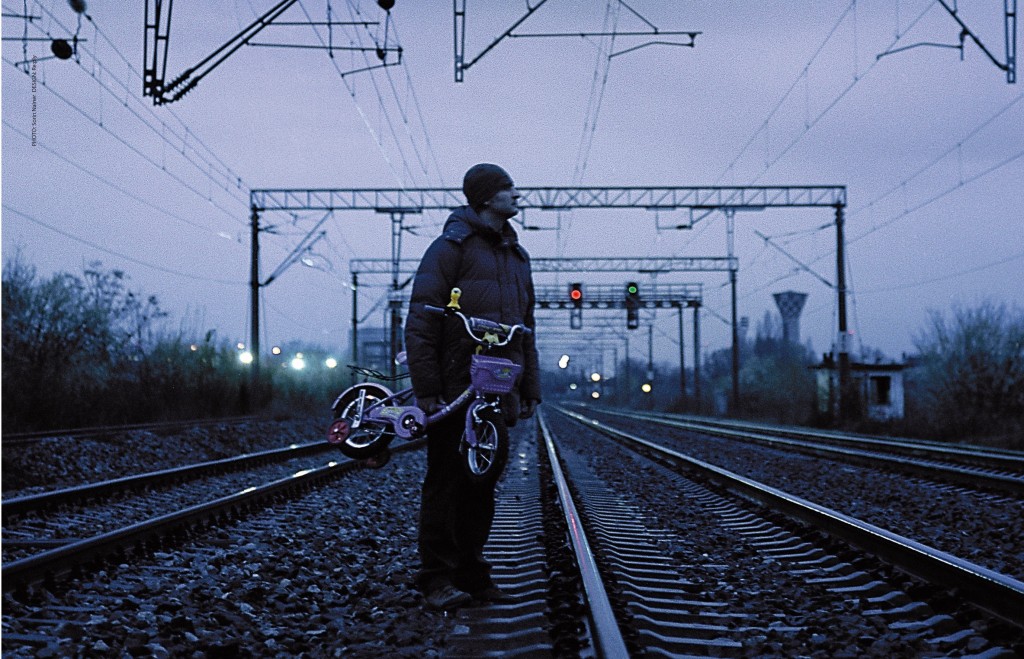Tue 28 Sep 2010
NYFF ’10: Tuesday, After Christmas and Aurora
Posted by Ethan under Film Festivals, Film Review, NYC Film Critic
Comments Off on NYFF ’10: Tuesday, After Christmas and Aurora
Tuesday, After Christmas
Directed by Radu Muntean
***1/2
Aurora
Directed by Cristi Puiu
**1/2
The recent Romanian New Wave kicked off with a series of films that used small personal stories to explore broader social and political issues that are part of the country’s past and present. 2005’s The Death of Mr. Lazarescu, for example, offered an almost moment-by-moment account of the last night in an elderly man’s life and, in the process, exposed a broken health care system. 2007’s 4 Months, 3 Weeks and 2 Days followed a young woman’s attempt to have an abortion after dictator Nicolae Ceausescu outlawed the procedure in the ‘80s. And in last year’s Police, Adjective, a cop tries to navigate around his department’s excessive bureaucracy to give a young offender a second chance.
The interesting thing about this year’s crop of Romanian films—Tuesday, After Christmas and Aurora, both of which premiered at the Cannes Film Festival earlier this year before arriving in New York—is that they distinctly emphasize the personal over the political. Take Radu Muntean’s Tuesday, After Christmas a domestic drama in the vein of Ingmar Bergman’s Scenes From a Marriage. The movie introduces viewers to Paul, a generally contented family man who is happily cheating on his wife with their daughter’s dentist. Although he’s been able to keep his affair secret so far, in the run-up to the Christmas holidays Paul realizes it’s time to decide which woman he wants to be with. Tuesday, After Christmas is remarkably objective in its presentation of this material, avoiding the moralizing that would undoubtedly be present in a Hollywood version of the same story. None of the characters are written or played as villains; rather they’re flawed, but basically well-meaning people doing their best to navigate difficult emotional terrain. The performances are so natural and the direction so low-key, it’s easy to forget your watching a scripted film. Even the centerpiece sequence—Paul’s confession to his wife—is played with believable restraint. If the movie has a flaw, it’s that it is almost too controlled and focused, lacking the piercing psychological insight (not to mention the wild mix of emotions) present in Bergman’s own story of marriage and adultery, as well as the wider worldview present in other Romanian films.
Funnily enough, Aurora has the opposite problem. Director Cristi Puiu, who helped get the Romanian renaissance rolling with The Death of Mr. Lazarescu, presents a fairly expansive portrait of daily life in the country’s capital city, Bucharest. But his central character, a quiet, oddly passive engineer named Viorel—played by the filmmaker himself—remains something of a cipher. Like Lazarescu, Aurora moves at a deliberate pace, tracking Viorel’s movements in almost real time over the course of a two or three day period. After roughly 90 minutes spent observing him doing everyday things–visiting his family, eating lunch, going to work–Viorel marches into an underground parking lot and shoots a man and a woman at point-blank range. By the end of the film, two more people are dead and the murderer sits in a police station, calmly confessing his crimes to a pair of disbelieving detectives. The film’s closing scenes provide some much-needed payoff, but getting there is often slow going. Where Lazarescu‘s studied pace allowed viewers to fully grasp the horror and dark humor of the title character’s predicament, Aurora, by design, doesn’t flesh out Viorel’s relationship to his environment or to the other characters that wander through the frame. His thoughts and motives are kept opaque, no doubt to underline the film’s overarching idea that killers can emerge out of nowhere. As a result though, it’s difficult to know which scenes demand our close attention and which are just filler. Both Aurora and Tuesday, After Christmas are intriguing attempts to expand the scope of Romanian cinema by telling more personal stories, but only one of them genuinely seems interested in its characters’ personalities.



No Responses to “ NYFF ’10: Tuesday, After Christmas and Aurora ”
Sorry, comments for this entry are closed at this time.